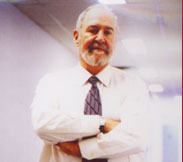July 8 - 18, 2002
Robarts Centre for Canadian Studies
York University, Toronto, Canada
Co-directors:
• Daniel Drache, Director, Robarts Centre for Canadian Studies, York University
•Jean Daudelin, Principal Researcher, North South Institute and Adjunct Research Professor, Norman Patterson School of International Affairs, Carleton University
Summer Institute 2002:
• Detailed Program
• Materials
• Papers
The Robarts Centre for Canadian Studies is organizing a high level interdisciplinary Summer Institute on the crucial issues of hemispheric integration and human security from a Canadian perspective from July 8 -18, 2002. It is directed at leading scholars from Latin American universities, top policy makers as well as a select number of doctoral students. The format is interactive and participatory.
The Summer Institute provides participants with a unique opportunity to work with Canadian academic specialists, as well as those from government, media, business, labour and social movements, on the new hemispheric trade agenda and Canada's evolving role in integration. One of its goals will be to build a policy research network.
Some of the topics and concerns that will serve as a basis for this year's discussion are:
• The Americas after September 11: Current Policy Dilemmas for Government and Society. Where are we Headed?
• Social exclusion and human security: Crime, Policing and the Privatization of Security
• Integration and the US Security Agenda
• The FTAA, Borders and Human Security: What has Changed on the Ground?
• Hot Borders in the Americas: Security Perimeters Contrasted
• Drugs, Money and Governance: Getting a Handle on Hemispheric Realities
• Social Equity: The Canadian Dilemma ñ the Costs and Benefits of a Decade of Economic Integration Corporate Canada vs Social Canada
• Sharing the 49th Parallel: Homeland Defense, Immigration and Human Rights
• Social Exclusion in Canada: The Marginalized Homelessness, Street Kids Social Disability and Poverty
• Troubled Governance and the Military in the Americas: Entrenching Democracy?
• Elites and the Private Sector: How Secure is the Ghetto?
• Multilateralism From Below Between September 11 and Porto Alegre: Is There Still a Space for Hemispheric Civil Society?
• Prospects for Multilateralism: Governments and Inter-Governmental Organizations after September 11
Participants can apply through an open competition and all expenses will be covered for those chosen. Space is limited to 20 participants.
A special feature of the Institute will be its inclusion of graduate students who are nearing completion of their PhDs. Five fellowships have been dedicated to this purpose and for those chosen, travel and accommodation will be covered.
For this year, experts from the Mercosur countries of Chile, Brazil, Argentina and Uruguay as well as Mexico are particularly encouraged to apply. Equally, scholars with knowledge and expertise on southern countries who are not from Latin America are also most welcome.
Canadian studies specialists from Latin America who are recipients of FEP/FRP grants are encouraged to apply using their scholarship award for transportation and accommodation costs.
Condition of the award: participants will be required to write a 25-page paper in their area of expertise and on a topic that is part of the Summer Institute programme. The paper will be considered for publication and will be posted on the web site. The Robarts Centre reserves the right to make use of the papers as part of their activities and programmes. Final papers are to be received no later than June 30, 2002.
A reasonable command of English is necessary, as no translation services will be available. All conference proceedings are in English,

Hemispheric Integration and Social Cohesion Summer Institute
The Americas After September 11: Summer Institute 2002

.gif)